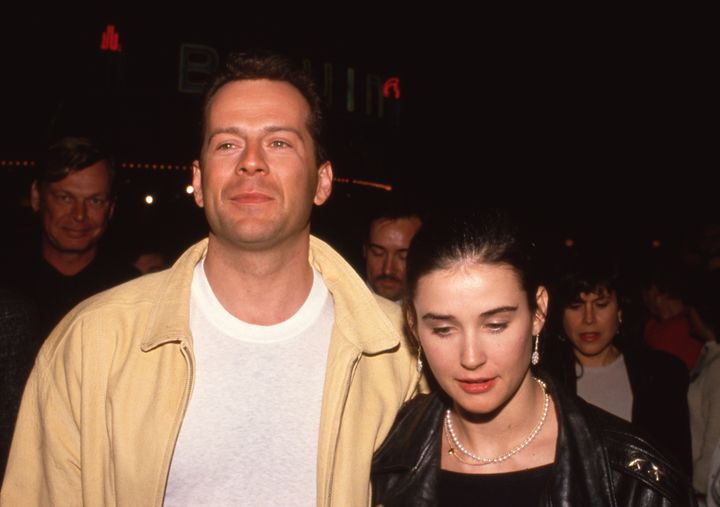Demi Moore has shared a health update on her ex-husband Bruce Willis years after his frontotemporal dementia (FTD) diagnosis.
While accepting an award at the Hamptons International Film Festival in New York over the weekend, Moore, 61, revealed that the “Die Hard” star, 69, is in “stable” condition.
“You know, I’ve said this before. The disease is what the disease is,” Moore told the audience Sunday during a live discussion, People magazine reported. “And I think you have to be in real deep acceptance of what that is.”
The “Ghost” alum added, “But for where he’s at, he is stable.”
Moore and Willis were married from 1987 to 2000 and share three children together: Rumer, Scout and Tallulah. The “Pulp Fiction” star tied the knot again in 2009 with British model Emma Heming Willis, with whom he shares two children, Mabel and Evelyn.
In March 2022, Willis’ family announced that he was stepping away from acting after being diagnosed with aphasia, which affects communication.
MediaPunch via Getty Images
The family shared an update nearly a year later, revealing that Willis’ condition had progressed into frontotemporal dementia.
“We are moving through this as a strong family unit, and wanted to bring his fans in because we know how much he means to you, as you do to him. As Bruce always says, ‘Live it up’ and together we plan to do just that,” they said in a joint statement to the Association for Frontotemporal Degeneration.
Earlier this year, Heming Willis called out “stupid headlines” about the actor’s life following his aphasia diagnosis, noting they are “far from the truth.”
Support Free Journalism
Already contributed? Log in to hide these messages.
“I just got clickbaited. I’m just scrolling, minding my own business, and just saw a headline that had to do with my own family,” his wife said in a video message on Instagram. “The headline basically says there is no more joy in my husband. Now, I can just tell you, that is far from the truth.”
She then scolded the unnamed outlet for “scaring people” with their sensationalized statements.
“Stop scaring people to think that once they get a diagnosis of some kind of neurocognitive disease that ‘That’s it. It’s over,” Heming Willis added. “Let’s pack it up. Nothing else to see here, we’re done.’ No. It is the complete opposite of that, okay?”

